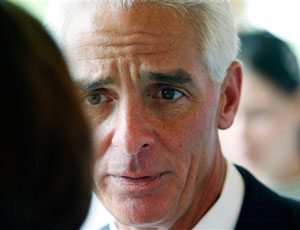With the control of the House and possibly the Senate at stake, construction unions and industry groups say their members are highly engaged in the 2010 mid-term congressional elections and are on track to equal, if not exceed, their political contributions for 2006, the last mid-term election year.

Contributions from construction industry associations and companies reached $40.7 million as of Sept. 13, according to their filings with the Federal Election Commission, says the Center for Responsive Politics. Construction donors gave a little more than $55 million by the end of the 2006 election cycle.
Construction unions have given a little over $12 million as of Sept. 13, compared with a total of $16.9 million for 2006.
Although unions and construction groups consider other issues, such as candidates’ positions on taxes, labor policy and government regulation, their stance on infrastructure investment appears to be the true litmus test for receiving financial support this year.
Pam Whitted, vice president of government affairs for the National Stone, Sand and Gravel Association, says, “We’re hoping pro-transportation and pro-business candidates will be elected, whether they are Democrat or Republican.”
Political contributions from NSSGA are up substantially this cycle, compared with 2006 levels, Whitted says. The group gave $637,000 in 2006, but has already contributed $688,000 for the 2010 races and plans to give at least $20,000 more before the cycle ends, she adds.
NSSGA has given to some Democrats with jurisdiction over transportation funding or labor issues, including Sens. Barbara Boxer (D-Calif.) and Patty Murray (D-Wash.), who are both in tough races this year.
Steve Hall, vice president of government affairs for the American Council of Engineering Companies, says that ACEC will support candidates on both sides of the aisle. He says, “We’re engaged in a lot of House races that aren’t necessarily getting a lot of attention, but they’re still districts where supporters of ours—long-time friends—are facing some spirited challenges.” Hall also says ACEC’s final 2010 contribution total probably will exceed 2006’s.
“Our biggest focus right now is on job creation and infrastructure investment,” says Bevin Albertani, legislative and political director for the Laborers International Union of North America. LIUNA has contributed $2.3 million at the national level for federal candidates so far this year, close to its $2.99-million total in 2006.
Albertani says, “We’re all kind of waiting at the edge of our seats to see when Congress is going to pass a surface transportation reauthorization.”
Sbe adds that lawmakers such as Boxer and House Transportation and Infrastructure Committee Chairman James Oberstar (D-Minn.) have been working on infrastructure issues “for a long time, and are acutely aware of what’s going on in the construction industry and the construction unions and how badly we need that shot in the arm—not just for our members, but how badly America’s infrastructure needs it, state Department of Transportations need it.”
Some groups tend to lean more Republican than Democrat. Jeff Shoaf, senior executive director of government and public affairs for the Associated General Contractors of America, says the failure of the current Congress to enact a multi-year surface transportation reauthorization bill or to address small-business tax issues, as well as its passage of health care reform, has created “a real backlash” against the Democratic majority among AGC members.
AGC is on track to give a little over $1 million for the 2010 cycle, on par with what it gave in 2006, Shoaf says. “We support people who support our agenda” on taxes, regulations and infrastructure investment, he says.
The Associated Builders and Contractors leans heavily Republican. “It’s a bipartisan PAC, but primarily the contributions go to pro-business candidates,” says Chris Singerling, ABC’s director of political affairs.
ABC plans to give approximately $1.6 million in 2010, equal to what it gave in 2006. Most of that will go to pro-business, “free enterprise” candidates who will challenge the “anti-business agenda that’s been passed and signed into law here in Washington,” he says.
Jim Williams, general president of the International Union of Painters and Allied Trades, notes that his union will spend considerable funds in local mobilization and get-out-the vote efforts.
According to the Center for Responsive Politics, IUPAT had given $1.4 million too federal candidates by Sept. 13, but Williams says that “soft dollar expenditures are well over $1 million so far” and that number will grow between now and Election Day.
Albertani adds that LIUNA is similarly devoting significant resources to educational and outreach activities to mobilize its members. “We’re doing everything we can,” she says.
| Amount (In thousands) | Dem | ;Repub | |
|---|---|---|---|
| 1. National Association of Home Builders | $1,522 | 40% | 59% |
| 2. National Electrical Contractors Association | $992 | 44% | 55% |
| 3. Associated General Contractors | $863 | 26% | 74% |
| 4. Associated Builders and Contractors | $857 | 1% | 96% |
| 5. American Council of Engineering Companies | $655 | 51% | 47% |
| 6. Bechtel Group | $628 | 53% | 46% |
| 7. National Stone, Sand & Gravel Assoc. | $566 | 39% | 60% |
| 8. CH2M Hill | $437 | 59% | 40% |
| 9. Perry Homes | $404 | 0% | 98% |
| 10. Jacobs Engineering Group | $399 | 45% | 55% |
| Office | Amount | |
|---|---|---|
| 1. Charlie Crist (I-Fla.) | Senate | $625,819 |
| 2. Rob Portman (R-Ohio) | Senate | $375,850 |
| 3. Charles Schumer (D-N.Y.) | Senate | $292,627 |
| 4. Roy Blunt (R-Mo.) | Senate | $266,650 |
| 5. David Vitter (R-La.) | Senate | $250,450 |
| 6. Harry Reid (D-Nev.) | Senate | $250,350 |
| 7. Richard Shelby (R-Ala.) | Senate | $245,150 |
| 8. Mark Kirk (R-Ill.) | Senate | $244,849 |
| 9. Pat Toomey (R-Pa.) | Senate | $239,233 |
| 10. Marco Rubio (R-Fla.) | Senate | $236,254 |
| Amount (In thousands) | Dem | Repub | |
|---|---|---|---|
| 1. Operating Engineers Union | $2,149 | 90% | 10% |
| 2. Laborers Union | $1,911 | 96% | 4% |
| 3. Carpenters & Joiners Union | $1,834 | 85% | 15% |
| 4. Plumbers/Pipefitters Union | $1,796 | 95% | 4% |
| 5. Ironworkers Union | $1,586 | 97% | 3% |
| 6. Sheet Metal Workers Union | $900 | 99% | 1% |
| 7. Painters and Allied Trades Union | $839 | 98% | 1% |
| 8. Bricklayers Union | $620 | 97% | 2% |
| 9. AFL-CIO/BCTD† | $207 | 79% | 21% |
| 10. Asbestos Workers Union | $150 | 96% | 4% |
| Source: Center for Responsive Politics * Totals reflect Federal Election Commission Reports as of 9/13/10 | |||
| Office | Amount | |
|---|---|---|
| 1. Joseph Sestak (D-Pa.) | Senate | $97,000 |
| 2. Judy Chu (D-Calif.) | House | $93,000 |
| 3. Robin Carnahan (D-Mo.) | Senate | $87,500 |
| 3. Colleen Hanabusa (D-Hawaii) | House | $87,500 |
| 5. Deborah Halvorson (D-Ill.) | House | $81,900 |
| 6. George Miller (D-Calif.) | House | $77,650 |
| 7. Scott Murphy (D-N.Y. | House | $74,350 |
| 8. John Garamendi (D-Calif.) | House | $74,000 |
| 8. Kendrick Meek (D-Fla.) | Senate | $74,000 |
| 10. Bill Foster (D-Ill.) | House | $72,250 |
| Source: Center for Responsive Politics. *Totals Reflect Federal Election Comision Reports as of 9/13/2010. �Building & Construction Trades Dept. | ||



Post a comment to this article
Report Abusive Comment